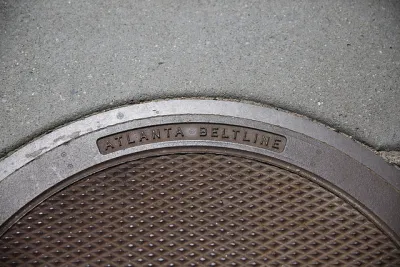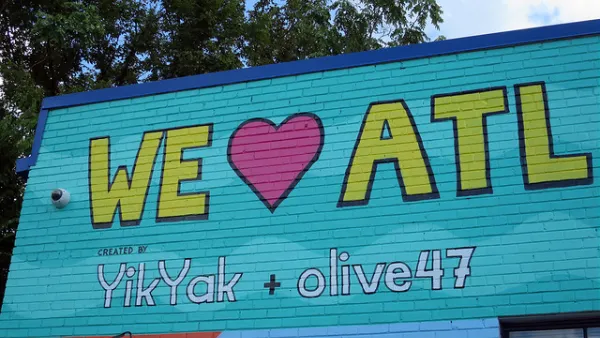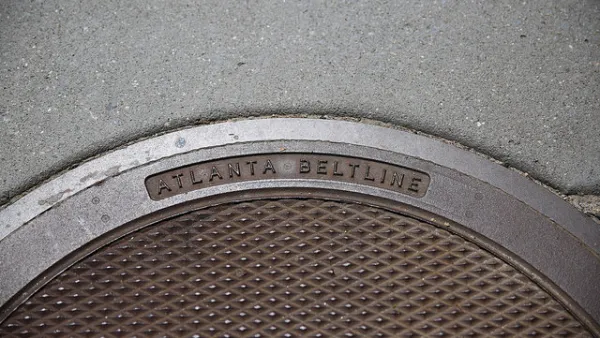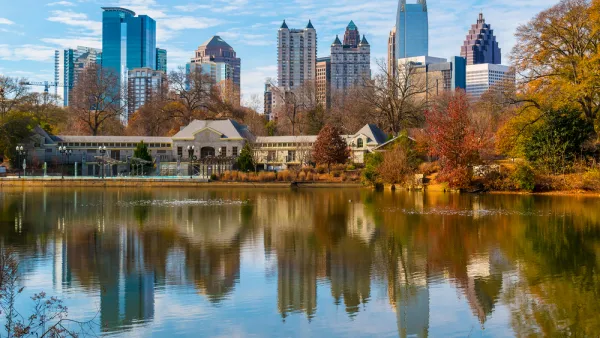Streetsblog USA shares an interview with the visionary behind the Atlanta BeltLine, who discusses how the city's booming economy has conflicted with the mission of the project.

Angie Schmitt spoke with Ryan Gravel following his high-profile resignation from the board of the Atlanta BeltLine Partnership.
As explained by Schmitt, Gravel laid out the vision of the BeltLine, to "[transform] forgotten railroad tracks circling the city of Atlanta into a recreational and active transportation corridor," and helped the idea gain political and financial support as well as attract the admiration of observers all over the country. Thus, Gravel's resignation was a big deal, and Schmitt's interview provides a chance to clear the air and sound an alarm about the pressing concerns that caused Gravel to act.
Here, Gravel explains in his own words why issues of equity and gentrification have become central in the conversation about the BeltLine:
It’s just become clear with the economy roaring back and the population in the city growing quite a lot, and projected to grow quite a lot, if we want to live up to the promise of the BeltLine we need to get more aggressive on [housing] affordability.
According to Gravel, the mission of the BeltLine partnership has come to be defined by a tension between "the need to raise money for the project and the need to leverage some of the community’s passion for the project to achieve political pressure to achieve its outcomes."
Gravel also suggests some future actions to help solve the problems he's encountered, such as loosening development regulations for housing and having a more public dialogue. Gravel also concludes by hinting at his next steps, which could include a new organization.
FULL STORY: Atlanta BeltLine Visionary Speaks Out on His Very Public Resignation

Analysis: Cybertruck Fatality Rate Far Exceeds That of Ford Pinto
The Tesla Cybertruck was recalled seven times last year.

National Parks Layoffs Will Cause Communities to Lose Billions
Thousands of essential park workers were laid off this week, just before the busy spring break season.

Retro-silient?: America’s First “Eco-burb,” The Woodlands Turns 50
A master-planned community north of Houston offers lessons on green infrastructure and resilient design, but falls short of its founder’s lofty affordability and walkability goals.

Test News Post 1
This is a summary

Analysis: Cybertruck Fatality Rate Far Exceeds That of Ford Pinto
The Tesla Cybertruck was recalled seven times last year.

Test News Headline 46
Test for the image on the front page.
Urban Design for Planners 1: Software Tools
This six-course series explores essential urban design concepts using open source software and equips planners with the tools they need to participate fully in the urban design process.
Planning for Universal Design
Learn the tools for implementing Universal Design in planning regulations.
EMC Planning Group, Inc.
Planetizen
Planetizen
Mpact (formerly Rail~Volution)
Great Falls Development Authority, Inc.
HUDs Office of Policy Development and Research
NYU Wagner Graduate School of Public Service




























